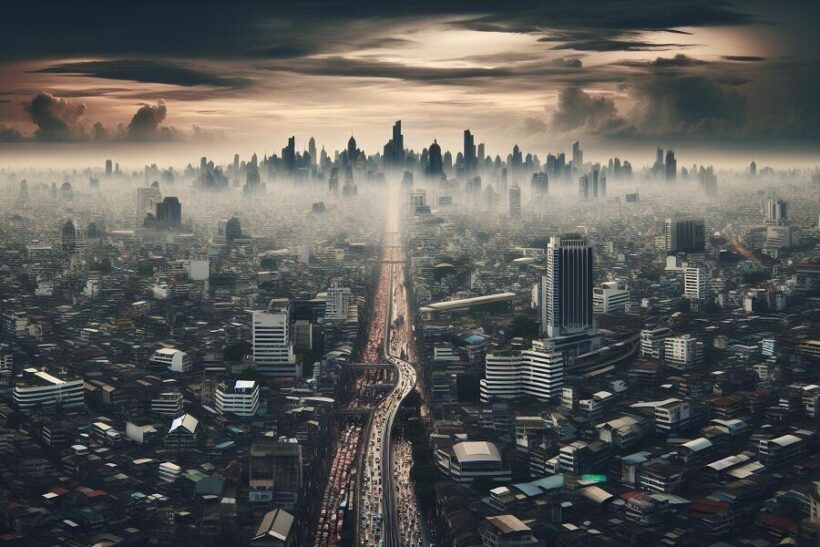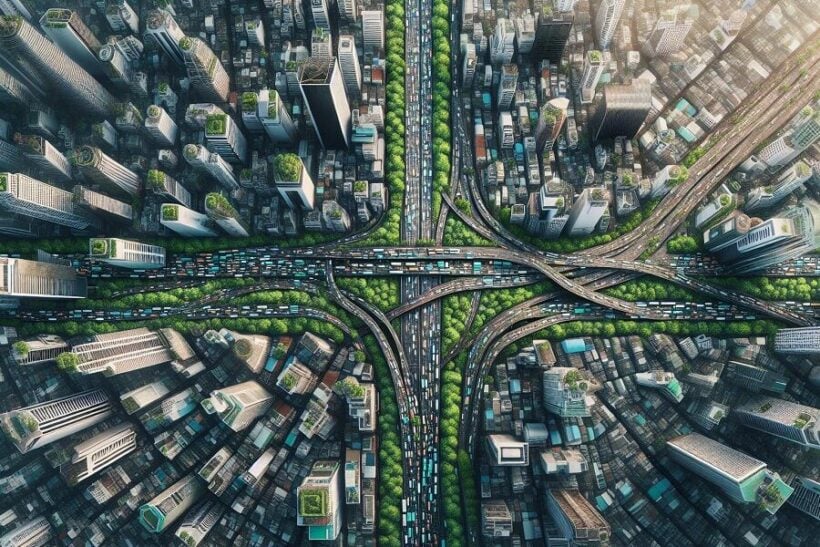Bangkok’s air crisis: Can beating traffic clear the haze?

Bangkok’s bustling streets aren’t just a testament to its vibrant culture; they’re also a hotspot for traffic congestion. With cars and motorcycles weaving through the city, you’ve likely noticed the toll it’s taking on the air quality. It’s not just about the inconvenience of being stuck in traffic; there’s a deeper impact on the environment and your health.
Causes of traffic congestion in Bangkok
Volume of vehicles
When you navigate through Bangkok, you’ll quickly notice the immense number of vehicles crowding its streets. This isn’t merely an observation but a well-documented fact. With 11 million trips made daily, cars, taxis, buses, motorcycles, and the occasional tuk-tuk compete for space. A significant contributor to this congestion is the surge in private vehicle ownership.
As Bangkok’s economy boomed over the last few decades, so did the desire for personal cars. The sheer volume of vehicles plays a critical role in the city’s traffic problems, severely affecting the air quality. The more cars idling in traffic, the more exhaust fumes get released into the air, contributing to the PM2.5 levels and general air pollution in Bangkok. If you’re wondering about ways of improving air quality in Bangkok, reducing the number of vehicles on the road is a good start.
Poor urban planning
Bangkok’s explosive growth wasn’t matched with forward-thinking urban planning. The city’s roads cover a surprisingly small area of the urban landscape, insufficient for the heavy daily traffic demand. This imbalance between road capacity and vehicle volume leads to relentless congestion. Consequently, the average commute can last up to 68 minutes, with more than 20% of work journeys exceeding two hours. Such prolonged exposure to traffic not only affects your daily routine but also your health. With vehicles stalled for hours, the amount of exhaust pumped into the air increases, worsening the air pollution in Bangkok.
Improving the city’s layout and expanding public transportation options can significantly reduce the strain on the roads. Strengthening the rail system, for instance, could offer an alternative, faster mode of transport for many, potentially lightening the vehicle load on the streets. This change could also play a vital role in improving air quality in Bangkok, as fewer people would need to rely on cars and motorbikes for their daily commutes, thus reducing overall emissions.
Effects of traffic congestion on Bangkok’s air quality

When exploring urban health and wellness intertwined with automotive challenges, understanding the impact of traffic congestion on Bangkok’s air quality emerges as a critical topic. As you navigate the bustling streets of Bangkok, it’s hard not to notice the dense traffic that characterizes the city’s daily life. This congestion doesn’t just test your patience; it significantly deteriorates the air you breathe.
Increase in air pollution levels
Bangkok experiences considerable air pollution levels, with PM2.5 particles being a major concern. Traffic congestion plays a significant role in escalating these levels. Each vehicle stuck in traffic emits exhaust fumes, adding to the already contaminated air. Bangkok Traffic PM2.5 concentrations often surpass safe limits, making Improving Air Quality in Bangkok an urgent necessity. The collective emissions from vehicles contribute heavily to the city’s PM2.5 levels, putting everyone’s health at risk.
Health impacts on residents
The health implications for Bangkok’s residents due to poor air quality are extensive and alarming. Air Pollution Bangkok doesn’t just stay outdoors; it infiltrates homes, schools, and workplaces, affecting everyone indiscriminately. Prolonged exposure to high levels of PM2.5 can lead to respiratory issues, cardiovascular diseases, and aggravated asthma. Children and the older are particularly vulnerable, facing a higher risk of developing pneumonia and other chronic illnesses. Ensuring your health and wellness involves being aware of these risks and taking steps to mitigate exposure.
Economic consequences
The economic fallout from traffic-induced air pollution in Bangkok is steep. Healthcare costs spiral as more people seek treatment for pollution-related ailments. Productivity suffers when workers take sick leave due to respiratory or cardiovascular conditions exacerbated by polluted air. Moreover, traffic congestion itself results in lost hours, and fuel wastage, and impacts tourism, as visitors might think twice before exploring the smog-covered city. Addressing the issue of Improving Air Quality in Bangkok is not just an environmental or health prerogative but an economic imperative as well.
Measures to improve air quality affected by traffic congestion

Promotion of public transport
Encouraging the use of public transport is vital in mitigating traffic congestion and, by extension, improving air quality in Bangkok. By opting for the city’s efficient subway or bus systems, you not only circumvent the stress of gridlock but also contribute to a significant reduction in the number of vehicles on the road. Fewer cars mean lesser emissions, directly impacting the PM2.5 levels positively.
Implementation of emission standards
Implementing stricter emission standards for vehicles is another crucial step towards combating air pollution in Bangkok. By setting high standards, only automobiles that meet specific emission criteria are allowed on the streets. This ensures that the most polluting vehicles are gradually phased out, and replaced by cleaner alternatives.
Bangkok has begun to enforce more robust regulations, focusing on vehicles that emit a significant amount of black smoke. The goal is to ensure vehicles on the road are not contributing excessively to the city’s PM2.5 levels. Regular inspections and mandatory maintenance checks can further ensure that cars, buses, and motorcycles comply with these standards, collectively improving air quality in Bangkok.
If combating air pollution in Thailand is a concern for you, we invite you to explore our article Thailand’s Revolutionary Fight Against Air Pollution.
Latest Thailand News
Follow The Thaiger on Google News:


























